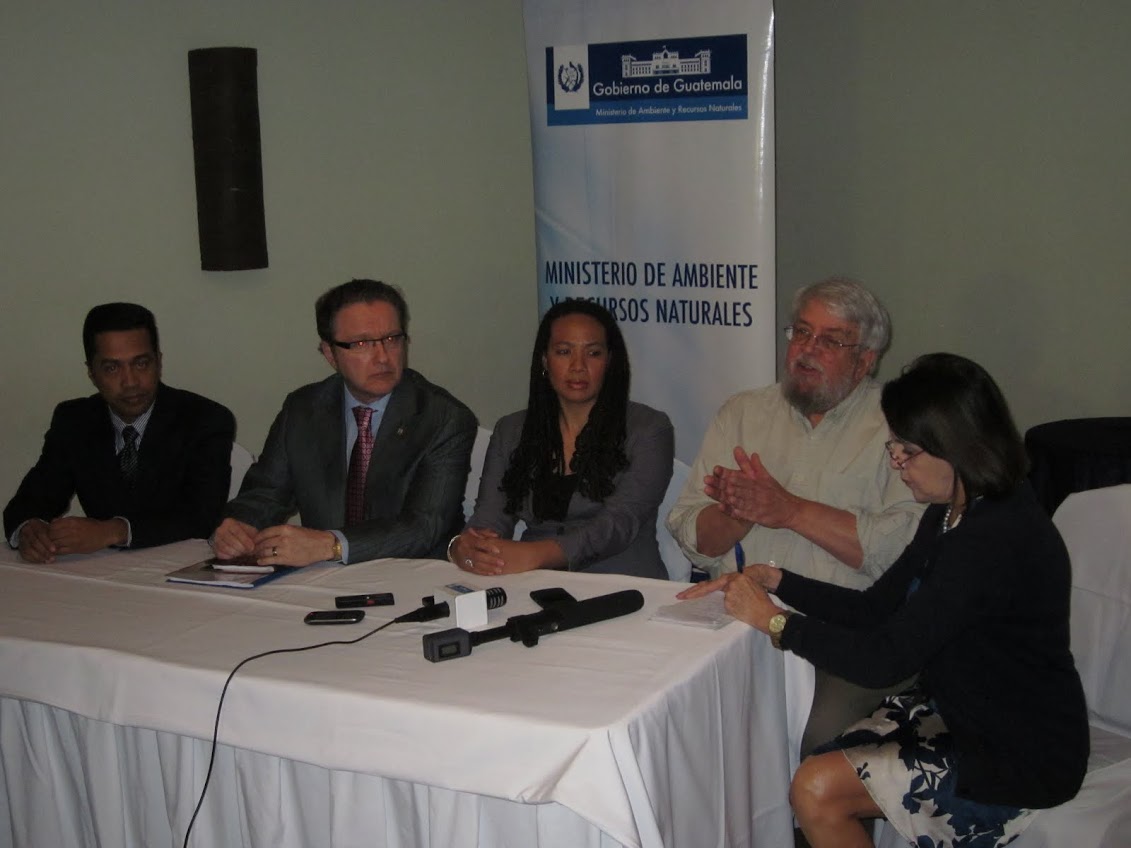
Bob Oglesby, professor of climate modeling in the School of Natural Resources, and Clint Rowe, professor in the Department of Earth and Atmospheric Sciences, recently completed a series of climate change downscaling workshops for the Guatemalan Ministry of Environment and Natural Resources.
"For about five years now, we’ve had a program funded primarily by the Interamerican Development Bank doing climate downscaling and training initially for Mesoamerica and the Caribbean," Oglesby said. "More recently, at their request, we’ve branched off and have been working at the individual country level."
In Guatemala, for example, three workshops took place over the course of a year. Each workshop hosts about 20 individuals selected by the ministry.
"It was a nice mix," Oglesby said. "Roughly one-third from the various ministries involved, one-third from the university, one-third from NGOs."
Oglesby and Rowe provide downscaling simulations of future climate change and make them available to workshop participants.
"But probably the more important thing we do is offer training in both how to make the downscaling, and how to use the climate change downscaling results for impact and vulnerability studies," Oglesby said.
The third and final workshop in the series culminated in a public presentation for the Guatemalan media.
"The room was packed," Oglesby said. "Every seat was taken."
Oglesby and Rowe have led similar climate change downscaling workshops in Mexico and Panama. A Bolivian workshop was announced during a public presentation on May 12 in Bolivia.
"This is something that they are extremely interested in and concerned about," Oglesby said. "There is no quibbling over whether climate change is real. They know it’s real – they’re experiencing it."
— Mekita Rivas, Natural Resources